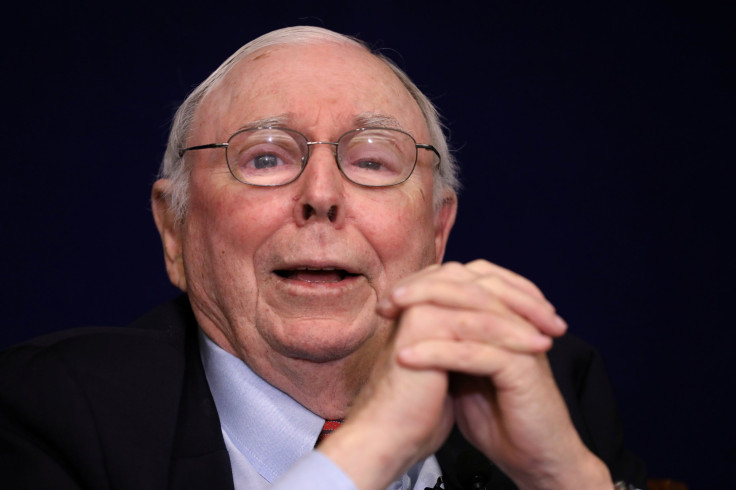Buffett Associate Munger Says Decline In Innovation Is A Bigger Market Worry Than Coronavirus

KEY POINTS
- Munger thinks the waning innovation is the biggest risk for the market
- U.S. market is at risk from events in China and internal political and economic uncertainties
- EBITDA as a profit metric is flawed as incapable of reflecting a firm’s true financial health
Charlie Munger, vice chairman of Warren Buffett’s investment company Berkshire Hathaway thinks the decline in innovation will prove to be more harmful to the market in the long run than the new coronavirus outbreak in China. The epidemic has so far taken about 1,350 lives and infected more than 60,000 people, mostly in Mainland China.
“I think there are lots of troubles coming,” Munger told the annual shareholders’ meeting of Los Angeles-based Daily Journal. “There’s too much-wretched excess,” the long-time business partner of Buffett said, according to a report on CNBC.
Insightful observations
At 96, Munger is still closely followed for his insightful observations. Considered one of the best investors and business thinkers ever, Munger ran an investment partnership before joining Berkshire and consistently returned an average of 20% per year from 1962 to 1975. The S&P 500 then averaged 5% annual growth in that period.
Munger, who chairs the publishing company, drew a picture of the huge risk investors are taking when investing, particularly in China. “In China, … they love to gamble in stocks. This is really stupid,” Munger said. “It’s hard to imagine anything dumber than the way the Chinese hold stocks.”
According to Munger, U.S. investors face risks including the impact of the coronavirus epidemic on the economy and political uncertainty because of the upcoming presidential election. He also flagged the ballooning U.S. budget deficit. The Treasury announced Wednesday that the deficit increased by 25% in the first four months of fiscal 2020 to $1.06 trillion.
The market, perhaps, had factored in the deficit bulge long back. Unmindful of the Treasury announcement, Dow Jones Industrial Average and S&P 500 hit record highs Wednesday, before pulling back a bit. Dow closed at 29,551 points, up 275 or 0.94%, while Nasdaq closed at 9,725, up 21 points or 0.65%, a report on CNN Money said.
Is EBITDA misleading?
Munger believes that the decline in innovation is the single biggest factor that will influence the markets in the future. He added that the innovation boom he experienced throughout his life was showing signs of waning, according to the CNBC report. “I do think that my generation had the best of all this technological change.” He drew attention to the dramatic improvements in medicine and other fields that bettered the general standard of living.
Munger strongly believes that EBITDA as a profit metric is fallacious. “I don’t like when investment bankers talk about EBITDA, which I call bulls--- earnings,” he said. “It’s ridiculous.” EBITDA — which is short for earnings before interest, taxes, depreciation, and amortization — does not accurately reflect how much money a company makes, unlike traditional earnings, the report said citing Munger. “Think of the basic intellectual dishonesty that comes when you start talking about adjusted EBITDA. You’re almost announcing you’re a flake.”
© Copyright IBTimes 2024. All rights reserved.




















